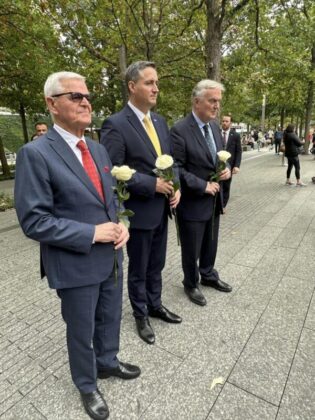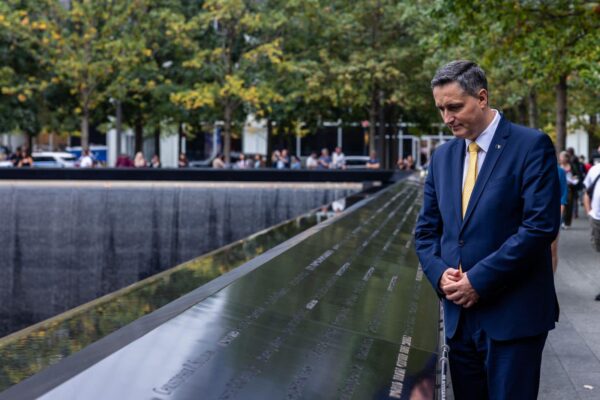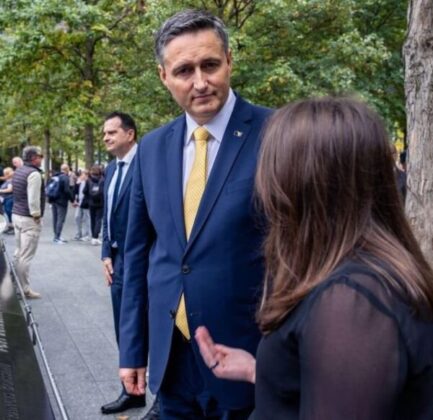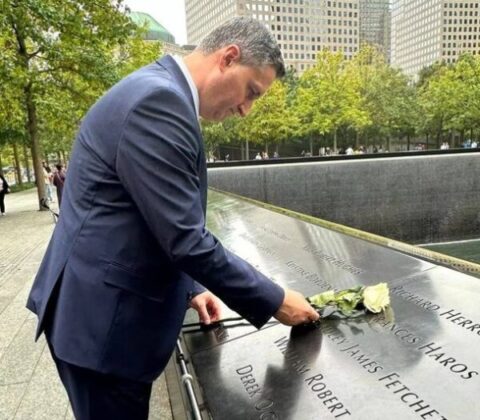Denis Bećirović, a prominent Bosnian politician and member of the country’s tripartite presidency, recently paid tribute to the victims of the 9/11 terrorist attacks in New York by observing a moment of silence instead of reciting a dova (an Islamic prayer). This seemingly small deviation from his usual practice of offering prayers at sites of historical significance has sparked controversy in Bosnia and Herzegovina, where religious and political symbolism are deeply intertwined.
Bećirović’s decision is puzzling, particularly for a politician known for offering prayers at partisan graves, where many fallen were atheists or non-Muslims. Why, then, did he refrain from the same ritual in New York—a place where thousands died, including Muslims? The answer may lie in the complex pressures he faces, both from within his party and Bosnia’s delicate political landscape.
Bosnia and Herzegovina is a country that still bears the scars of the 1990s war, fought along ethnic and religious lines. The Bosnian army, which Bećirović’s party (the SDA) largely represents, included a diverse array of fighters, from secular soldiers to radical Islamists. This historical backdrop complicates how figures like Bećirović navigate the present, especially in international arenas like the U.S., where 9/11 remains a deeply sensitive topic. Al-Qaeda, the group responsible for the attacks, had connections to Bosnia through foreign fighters, or mujahideen, who fought alongside the Bosnian Army during the war.
Among the more notorious figures with ties to both Bosnia and radical Islam was Abu Meali. Meali, an influential figure within Al-Qaeda, operated out of Bosnia with the apparent backing of elements within the SDA during the war. He was one of several radical operatives who exploited the chaotic post-war environment to secure Bosnian citizenship and diplomatic privileges. His link to the 9/11 attacks only became clear after the fact, when it was revealed that he had been in New York on the day of the attacks, representing Bosnia at the United Nations. It was later disclosed that Meali had been provided with a Bosnian passport, allegedly authorized by SDA members, underlining the murky ties between Bosnia’s wartime leadership and Islamist movements.
This scandal reached its peak when, following the attacks, U.S. authorities failed to detain Meali despite clear evidence of his connections to Al-Qaeda. He was allowed to leave the country, and key documents that could have exposed deeper ties between Bosnia’s wartime leadership and radical networks were destroyed shortly after in Vienna. Questions remain about who in the Bosnian government facilitated Meali’s escape, with names like Bakir Izetbegović and Željko Komšić often mentioned in whispered accusations. Bisera Turković, a seasoned Bosnian diplomat with a long tenure in foreign service, has also been scrutinized for her ties to Islamist circles, though she has managed to maintain her position in Bosnia’s diplomatic corps with minimal consequence.
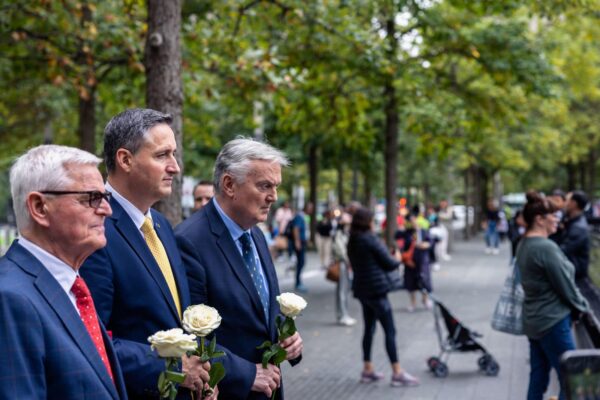
Turković’s case exemplifies the delicate dance many Bosnian officials must perform. On the one hand, they seek legitimacy on the international stage, particularly with allies like the U.S. and the EU. On the other, they must navigate a domestic political landscape where Islamist elements, however marginal, continue to wield influence. For Bećirović, the decision to opt for a moment of silence rather than a dova at Ground Zero may reflect a calculated effort to distance himself from these uncomfortable associations. It signals a sensitivity to Western perceptions of Bosnia as a nation that once harbored elements of radicalism while attempting to present himself as a moderate, secular leader on the world stage.
The implications of these choices resonate far beyond the Balkans. For an international audience, Bosnia is often viewed as a country that straddles the fault lines of Europe and the Middle East, a place where Christianity, Islam, and secularism collide. Bećirović’s actions in New York reveal the complexities of leading a nation still haunted by its recent past. It also raises important questions about how Bosnia’s wartime alliances continue to affect its diplomatic relations today, particularly in the post-9/11 world where the lines between friend and foe in the War on Terror remain blurred.
In the end, Bećirović’s moment of silence was likely intended to avoid controversy, but in Bosnia, where the ghosts of the past are never far from the surface, even the smallest actions carry profound weight.
Ivan Urkov l poskok.info
